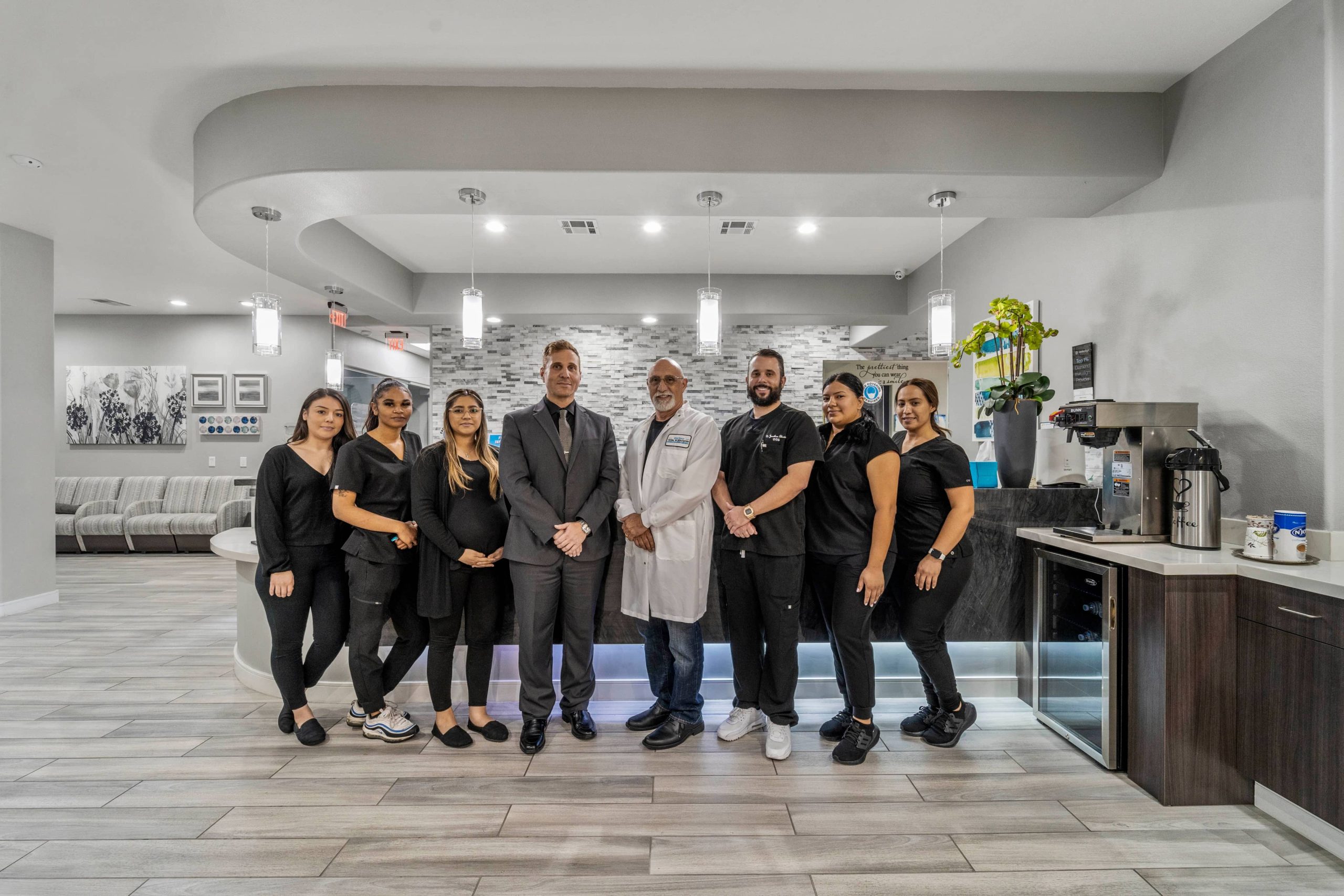TMJ Treatment
TMJ related pain is caused by the temporomandibular joint not working properly and therefore causing pain in the jaw or neck. Dr. Donia encourages patients suffering from pain in the jaw or neck to visit his office in the Encino, CA area and take advantage of his expertise in treating the disease.
TMJ Q & A
What Are the Symptoms of a TMJ Disorder?
Patients with Temporomandibular disorders can experience a variety of symptoms in varying degrees of severity and length. Adults ages 20-40 are most commonly affected by TMJ Disorder and symptoms can be felt by patients on one or both sides of the face.
The most common sign of TMJ is a pain in the jaw, face, shoulders, or neck while you chew or open your mouth. This pain may be accompanied by popping, clicking or grating noise when the mouth opens. The jaw may also get locked in an open position, or the face may simply feel tired or swollen.What Causes TMJ Disorders?
Unfortunately, the underlying cause of temporomandibular disorders is unknown. However, there are triggers that can cause the disease to develop such as injury to the jaw, neck or head due to blunt force trauma or whiplash.
Grinding your teeth while sleeping can also stress the joint and lead to pressure and potential damage. Also, if the disc between the ball and socket of the jaw experiences too much motion, this can then lead to irritation. Other potential causes include arthritis of the joint and the patient being overly stressed.What Is the Treatment for a TMJ Disorder?
Dr. Donia can design a treatment plan to help you manage TMJ symptoms through a variety of therapies including the use of medications that help to relax the muscles and reduce pain and swelling. The Dr. may also prescribe a device such as a splint or dental mouthpiece to help keep your upper and lower teeth from touching while you sleep. Splints are typically worn all the time and will also serve to correct any mild abnormality associated with your bite.
Replacing missing teeth will also serve correct the way you move your jaw and therefore alleviate some of the pain associated with TMJ. Dr. Donia may also recommend crowns, braces, or bridges to help guide your jaw and bite into the proper position.